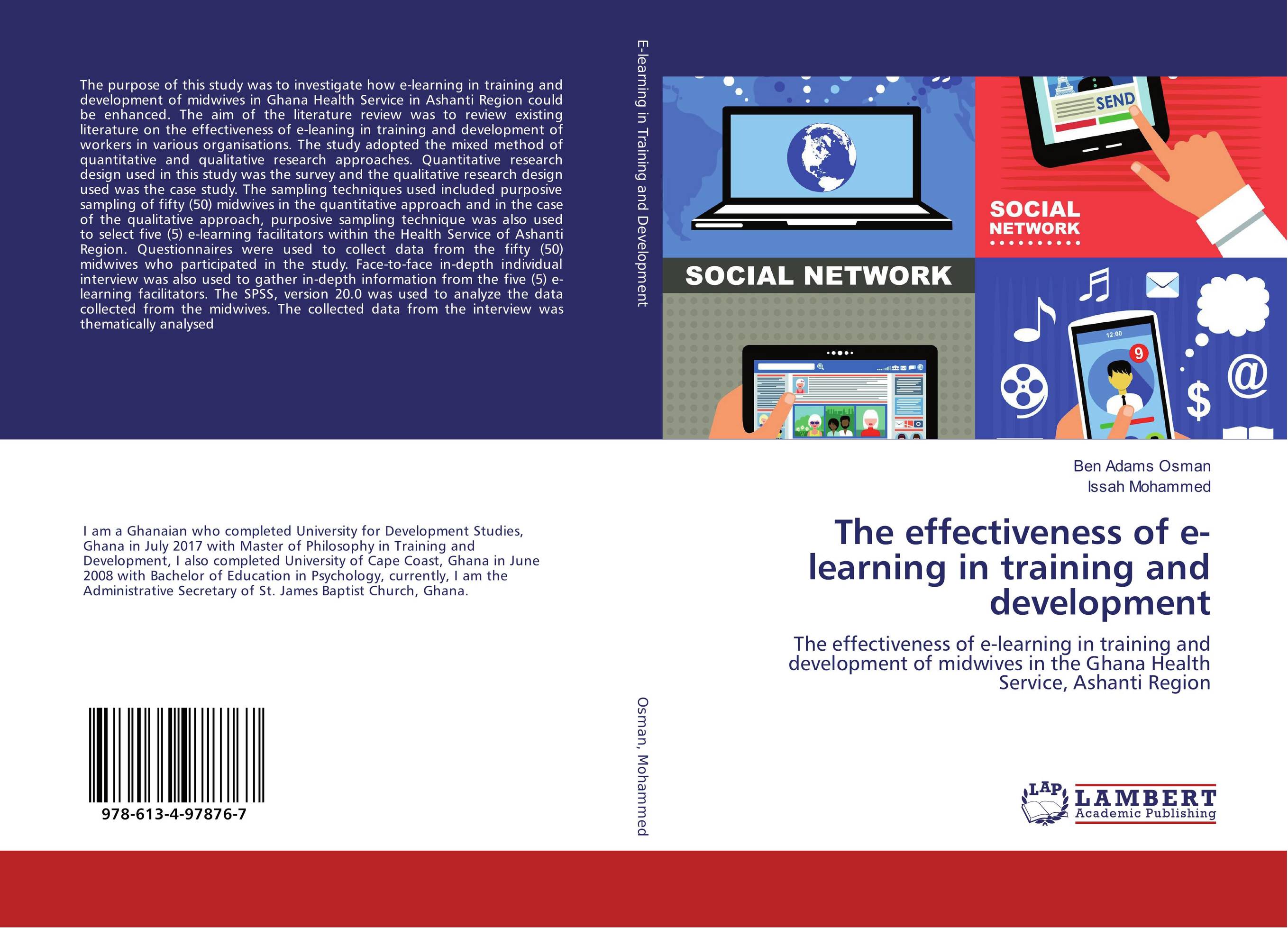| Поиск по каталогу |
|
(строгое соответствие)
|
- Профессиональная
- Научно-популярная
- Художественная
- Публицистика
- Детская
- Искусство
- Хобби, семья, дом
- Спорт
- Путеводители
- Блокноты, тетради, открытки
The effectiveness of e-learning in training and development. The effectiveness of e-learning in training and development of midwives in the Ghana Health Service, Ashanti Region

В наличии
| Местонахождение: Алматы | Состояние экземпляра: новый |

Бумажная
версия
версия
Автор: Ben Adams Osman and Issah Mohammed
ISBN: 9786134978767
Год издания: 2018
Формат книги: 60×90/16 (145×215 мм)
Количество страниц: 152
Издательство: LAP LAMBERT Academic Publishing
Цена: 36704 тг
Положить в корзину
Позиции в рубрикаторе
Сферы деятельности:Код товара: 183844
| Способы доставки в город Алматы * комплектация (срок до отгрузки) не более 2 рабочих дней |
| Самовывоз из города Алматы (пункты самовывоза партнёра CDEK) |
| Курьерская доставка CDEK из города Москва |
| Доставка Почтой России из города Москва |
Аннотация: The purpose of this study was to investigate how e-learning in training and development of midwives in Ghana Health Service in Ashanti Region could be enhanced. The aim of the literature review was to review existing literature on the effectiveness of e-leaning in training and development of workers in various organisations. The study adopted the mixed method of quantitative and qualitative research approaches. Quantitative research design used in this study was the survey and the qualitative research design used was the case study. The sampling techniques used included purposive sampling of fifty (50) midwives in the quantitative approach and in the case of the qualitative approach, purposive sampling technique was also used to select five (5) e-learning facilitators within the Health Service of Ashanti Region. Questionnaires were used to collect data from the fifty (50) midwives who participated in the study. Face-to-face in-depth individual interview was also used to gather in-depth information from the five (5) e-learning facilitators. The SPSS, version 20.0 was used to analyze the data collected from the midwives. The collected data from the interview was thematically analysed
Ключевые слова: Asynchronous, e-learning, synchronous



